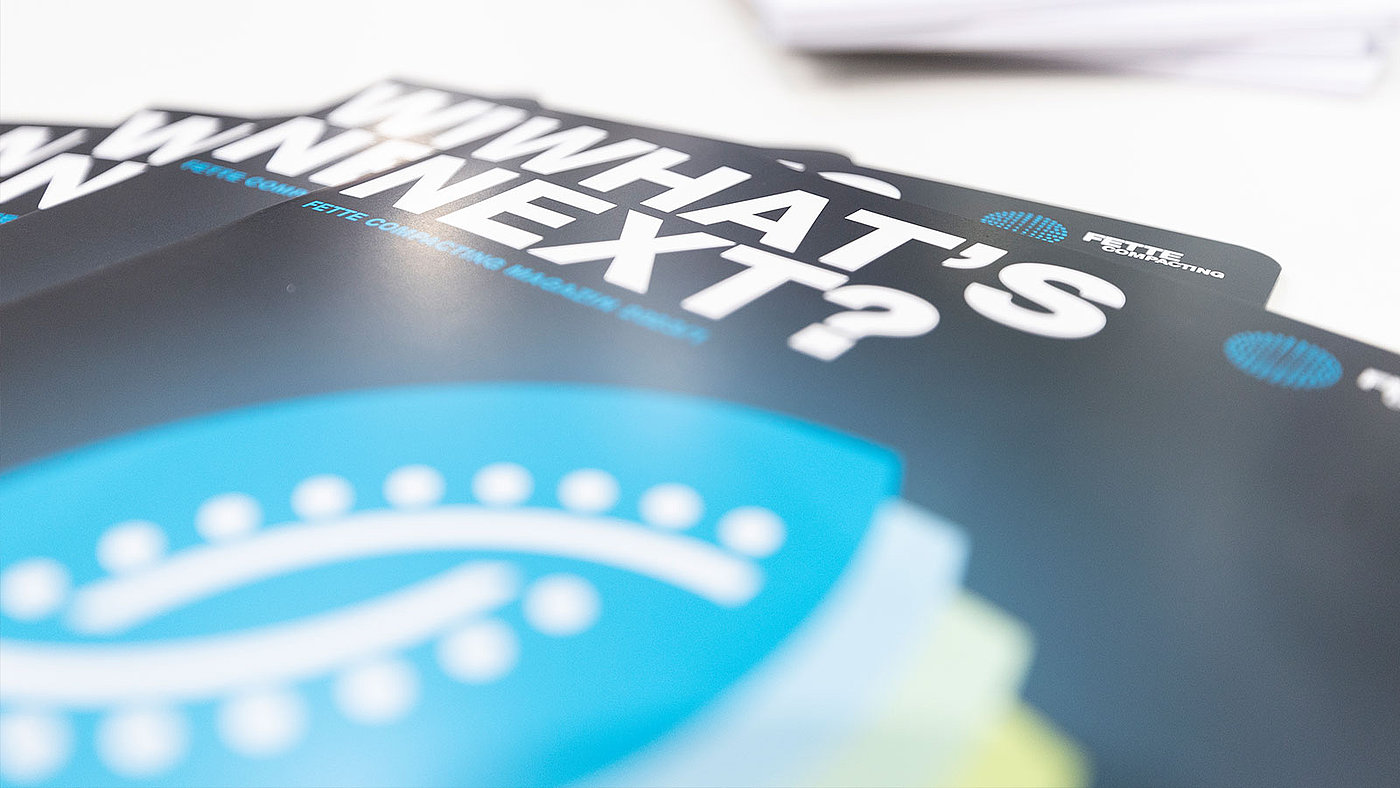Joachim Dittrich, CEO at Fette Compacting

In early 2021, Joachim Dittrich assumed the position of Chief Executive Officer at Fette Compacting. Anke Fischer soon joined him as Chief Financial Officer. In this interview, they embark on a journey through time from the early past to the distant future.
Mr. Dittrich and Ms. Fischer, 75 years of Fette Compacting:
What do you associate with this?
JD: 1948 saw the first tableting press from Fette Compacting being launched onto the market, the “Hanseaten Perfecta.” As a Hamburg native, the name “Hanseaten” also reminds me of our traditional red and white biscuits. But it actually describes a basic attitude, which I see as being characterized by pragmatism, reliability and openness to the world. As a Hamburg businessman, a handshake still means much to me today. I think it’s great that even the name of our first machine has forged a bond of trust with our customers that still endures today.
AF: The development we have undergone as a company since our establishment is something I find remarkable: from a simple eccentric press to a continuous direct compression system. This underlines our path from a purely manufacturer of machines to a leading supplier of process technology.
Healthcare is experiencing profound changes such as demographic shifts, shortages of skilled workers, and recurring supply shortages. How is Fette Compacting adapting to this?
JD: You are referring to some major challenges, which can even be supplemented by contexts such as climate change and cyber security. To address these issues with confidence, we are focusing more than ever on the needs of our customers, strengthening our international orientation, promoting innovative digital solutions, and consistently applying sustainability criteria in all our activities.
AF:This concerns our external perspectives as much as our internal corporate development. After all, we can only achieve transformation if we have the right personnel resources. That is why we have embarked on a culture journey and incorporated all of our employees in our corporate philosophy of “Together for Quality of Life”. We are also integrating external ideas and requests. This puts us in a position to work in partnership, simplify complex manufacturing processes, and ultimately improve the quality of life for everyone all over the world.
Let’s dive deeper into the strategic focus areas: Customer orientation and internationalization are not exactly new, are they??
JD: Certainly not, because just by looking at the last 75 years, you can see that Fette Compacting lives both. Yet so much has changed: Areas of technology such as Continuous Manufacturing or operator protection with containment have become highly complex, combined with increasingly demanding active substance formulations and a strongly regulated market environment. Particularly in the case of new developments, it is all the more important that producers and machine manufacturers cooperate and enter into partnerships at an early stage. Our ambitions are clear on this path: We are evolving from a machine builder to a supplier of process technology for powder formulation and tableting. In doing so, we will continue to expand our network, which will also include increasing our local-for-local structures Today, we are already producing mainly those products in our Chinese plant that are destined for Asian and price-sensitive markets. This approach creates security of supply and offers the greatest possible proximity to regional customer requirements.
What about sustainability measures? What milestones have you already reached?
AF: I’d like to provide a few insights here: We have been undergoing EcoVadis assessments for years and are a member of the Blue Competence sustainability initiative of the VDMA. This initiative pursues the goal of promoting sustainability specifically in mechanical and plant engineering. Responsible and respectful handling of resources and the environment is more important to us now than ever before. Since 2022, our environmental management system has been helping us to achieve our own environmental and climate goals. One focus is on energy- and material-efficient production with significant savings in terms of water consumption and emissions. We are working continuously to reduce our CO2 footprint and design the manufacturing process more sustainably. This can also be read in our sustainability report, which clearly presents all guidelines and measures.
JD: We are also recording success with regard to sustainability measures from which our customers benefit. As an example, I would like to mention the new i Series, which has succeeded in reducing energy consumption by up to 15 percent compared to similar machines. Potentials for saving resources and costs can be found everywhere: In pharmaceutical production, for example, material losses can be avoided if users consider continuous direct compression with the FE CPS and ePAT integrated process analysis technology. And analytical tools such as the new F Lab Series also help to develop formulations in a way that conserves resources and reduces downtimes in production. Often, several factors come together, as the performance analyses of our Fleet Management at various customers show. This is where our collaborative partnership comes full circle, enabling a holistic view of all factors associated with production.




